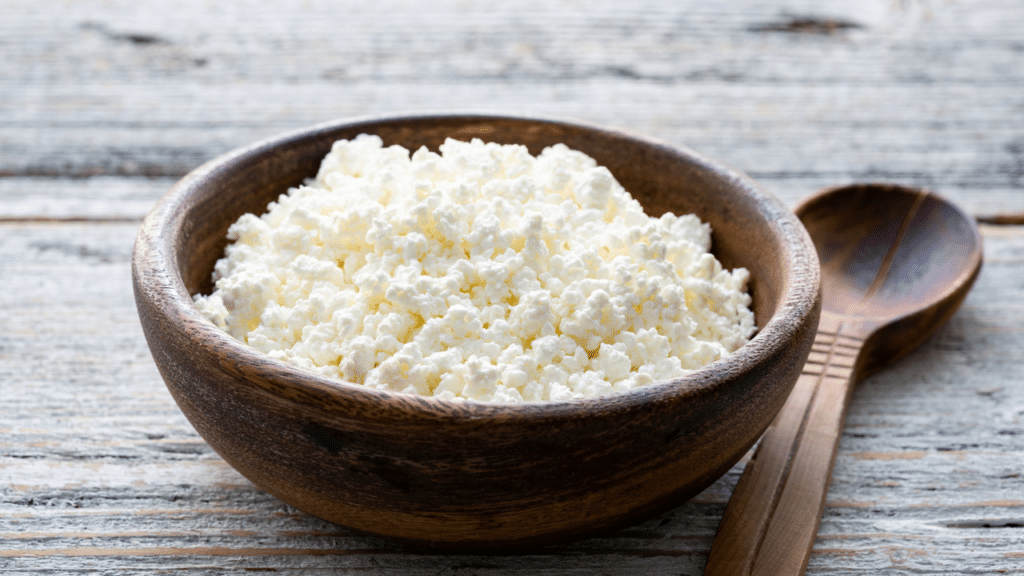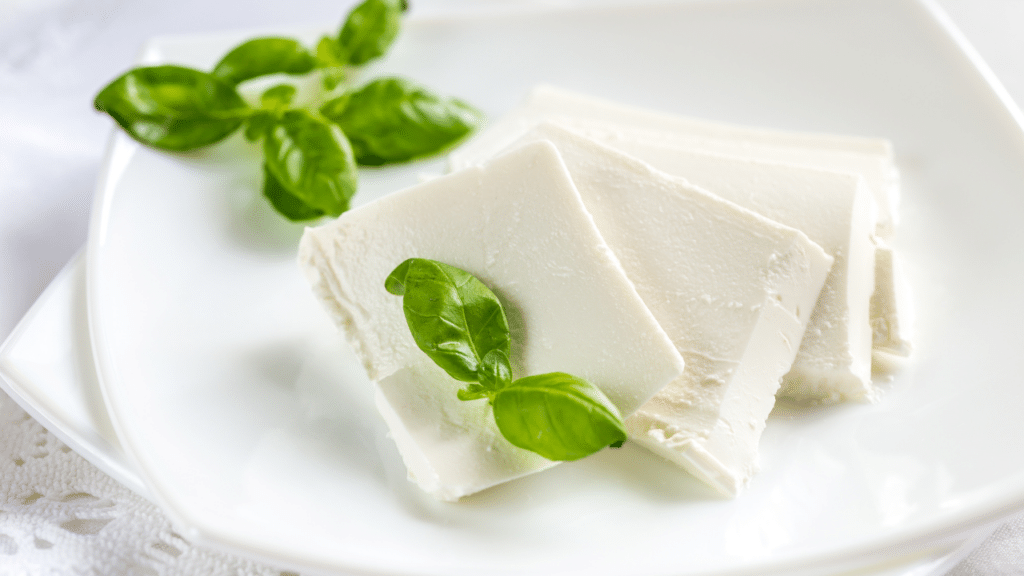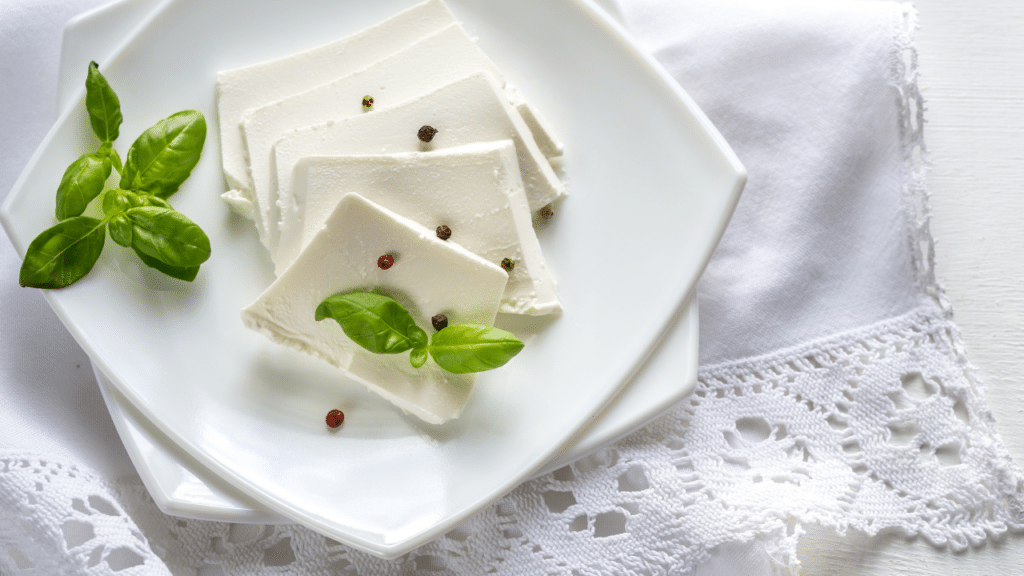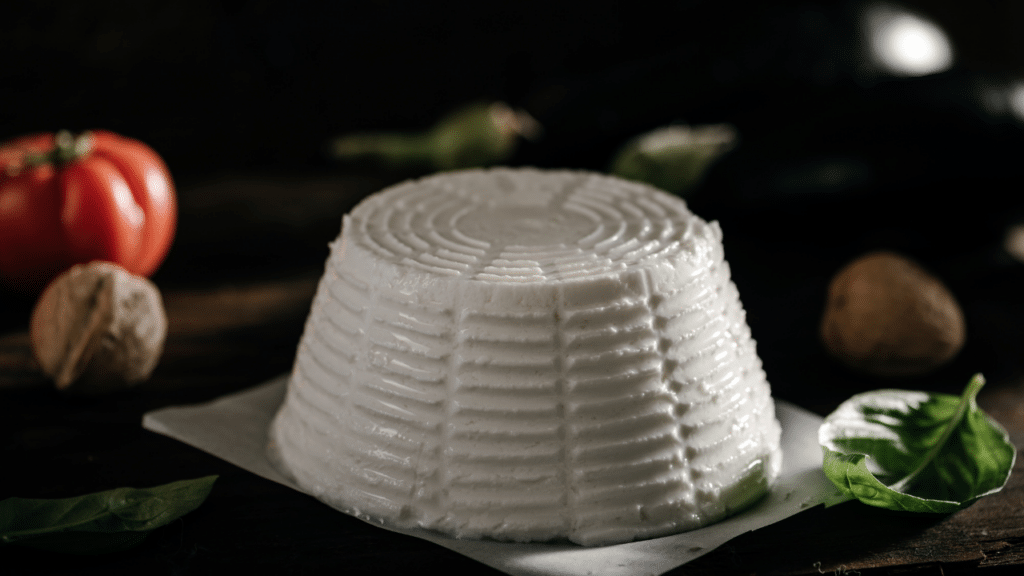Ricotta cheese is a light, creamy Italian-style curd cheese made from whey, the liquid byproduct of cheese making. Due to supply chain issues or local availability, Ricotta cheese is hard to find. Some regions produce less, impacting its presence in stores.
Navigating the cheese aisle, shoppers notice the occasional absence of ricotta cheese. This scarcity often stems from disruptions in the dairy supply chain or lower production rates in certain areas. Ricotta, an Italian whey cheese, requires specific cheese-making traditions that might not be as common in all regions, leading to its limited availability.

Also Read: Cream Cheese Vs Buttercream Frosting: Which Comes Out on Top?
Contents
- 1 Why is ricotta cheese hard to find?
- 1.1 1. Seasonal Variability
- 1.2 2. Local Production
- 1.3 3. Supply Chain Issues
- 1.4 4. Consumer Demand
- 1.5 5. Distribution Challenges
- 1.6 6. Pandemic-related Issues
- 1.7 7. Quality and Shelf Life
- 1.8 8. The Rising Demand For Ricotta Cheese
- 1.9 9. The Challenges Of Mass Production
- 1.10 10. Impact Of Supply Chain Disruptions
- 2 How to use ricotta cheese?
- 3 What cheese is the best substitute for ricotta?
- 4 Why is ricotta cheese in high demand?
- 5 What are the disadvantages of ricotta cheese?
- 6 Which country made ricotta cheese?
- 7 What is special about ricotta cheese?
- 8 Faq
- 9 Conclusion
Why is ricotta cheese hard to find?
To my knowledge, there may be various reasons why you might find ricotta cheese hard to find, but remember that the situation can change over time and may vary depending on your location. Here are some possible reasons:
1. Seasonal Variability
Ricotta cheese is often made from the whey left over from the production of other cheeses. The availability of this whey can be influenced by the production of other cheeses, which may vary seasonally.
2. Local Production
Ricotta is sometimes produced on a smaller scale, or regionally, so its availability can be limited to certain areas. It might be harder to find if you are in an area with less local production or distribution.
3. Supply Chain Issues
Disruptions in the supply chain, such as transportation challenges, fluctuations in demand, or issues with sourcing raw materials, can affect the availability of ricotta cheese.
4. Consumer Demand
Changes in consumer preferences or increased demand for ricotta due to popular recipes or cooking trends can lead to shortages, especially if production can’t keep up.
5. Distribution Challenges
Some speciality or artisanal cheeses, including certain types of ricotta, may not be widely distributed, making them less accessible in certain areas.
The COVID-19 pandemic has affected various industries, including food production and distribution. Supply chain disruptions, labour shortages, and other pandemic-related challenges could impact the availability of specific food items, including ricotta cheese.
7. Quality and Shelf Life
Ricotta is a fresh cheese, and its shelf life is relatively short compared to aged cheeses. It may not be as widely stocked as longer-lasting cheeses in some stores.
8. The Rising Demand For Ricotta Cheese
The Surge in Interest in Italian Cuisine has been a significant factor in the increasing scarcity of ricotta cheese. With dishes like lasagna, cannoli, and ravioli becoming household favourites, consumers seek authentic ingredients to enhance their culinary experiences. This rising demand puts pressure on the supply chain, often resulting in shortages on grocery shelves.
Additionally, a shift towards healthier foods has been noted among health-conscious consumers. Ricotta cheese, known for its low-fat content and high protein, aligns well with the nutritional profiles desired by these individuals. Ricotta stands out for those seeking nutritious dairy options, compounding its scarcity as demand outpaces supply.
9. The Challenges Of Mass Production
Ricotta cheese demands a notably delicate production process that can hinder mass production. Its creation involves precise temperature control and pH levels to ensure consistency and flavour. Ricotta’s freshness and texture are paramount to its quality, which can be easily compromised if the process isn’t carefully monitored. These constraints challenge scalability, as even minor deviations can result in a subpar product.
The short shelf life of ricotta cheese further compounds the difficulty in supplying it on a large scale. Unlike hard cheeses that can mature and improve with age, ricotta is best consumed fresh, often within two weeks of production. This necessitates a rapid distribution network to optimize its shelf-life and maintain its delicate flavour and texture, posing logistical challenges affecting its availability.
10. Impact Of Supply Chain Disruptions
The dairy industry faces significant challenges that contribute to the scarcity of ricotta cheese. Key issues include the fluctuating costs of milk production, regulatory hurdles, and the rise in global demand that strains local supplies.
Transportation and distribution setbacks further complicate the situation. Constrained logistics networks and increased freight costs often lead to delays. Such disruptions in the supply chain ripple through, impacting the availability of ricotta cheese on the shelves.
Also Read: Gorgonzola vs Blue Cheese: Exploring the Distinctive Characteristics

| Challenge | Impact on Ricotta Availability |
| Production Costs | Higher retail prices and reduced production quotas |
| Regulatory Hurdles | Limited market access and potential shortages |
| Global Demand | Strained local supplies, leading to sporadic scarcity |
| Logistics | Extended delivery times and higher chances of stockouts |
How to use ricotta cheese?
Ricotta cheese, with its creamy texture and mild flavour, is a versatile ingredient that enhances sweet and savoury dishes. Sweet creations shine as a filling for classic Italian cannoli, blending with powdered sugar, vanilla, and optional add-ins like chocolate chips or candied fruit. Its luscious richness elevates desserts such as cheesecakes, whether baked or no-bake and becomes a delightful addition to breakfast favourites like pancakes or waffles. Incorporate sweetened ricotta into stuffed French toast or dessert crepes for a decadent twist, creating layers of indulgent flavours.
On the savoury side, ricotta adds a creamy element to pasta dishes like lasagna, baked ziti, or stuffed shells. It can be used as a pizza topping, mixed with herbs for a white pizza sauce, or spread on sandwiches with fresh tomatoes and herbs. Additionally, ricotta shines in salads, vegetable dips, and savoury pancakes or fritters, offering a delightful contrast of flavours. Whether in classic Italian recipes or creative culinary experiments, ricotta is a versatile and delicious ingredient.
What cheese is the best substitute for ricotta?
Several kinds of cheese can substitute for ricotta, depending on the dish you’re preparing and the flavour and texture you’re looking for. Here are some common alternatives:
- Cottage Cheese: Cottage cheese is a popular recipe substitute for ricotta. It has a similar texture and can be blended to achieve a smoother consistency.
- Mascarpone: Mascarpone is a rich, creamy Italian cheese with a slightly sweet flavour. It works well in sweet and savoury dishes but may be denser than ricotta.
- Cream Cheese: Cream cheese is another creamy and mild option that can work as a substitute, especially in desserts and dips. It may be a bit tangier than ricotta.
- Goat Cheese: Goat cheese has a distinct tangy flavour and a creamy texture, making it a good substitute for ricotta in certain recipes. It works particularly well in savoury dishes.
- Paneer: Paneer is a fresh Indian cheese that is easy to make at home or can be bought in stores. While it has a different flavour profile, it can be crumbled or mashed to achieve a texture similar to ricotta.
- Quark: Quark is a European dairy product with a texture between yogurt and cream cheese. It can be used as a substitute for ricotta in sweet and savoury dishes.
- Ricotta Salata: If you’re looking for a substitute for savoury dishes, ricotta salata is an aged and salted version that can add a similar texture and saltiness.
- Greek Yogurt: In certain recipes, especially those requiring a lighter texture, Greek yogurt can be used as a substitute. It provides a tangy flavour and a creamy consistency.
Why is ricotta cheese in high demand?
Ricotta cheese has witnessed a surge in demand due to its remarkable versatility and ability to enhance the flavours and textures of various dishes. With a mild and creamy profile, ricotta has become a staple ingredient in sweet and savoury recipes, ranging from classic Italian favourites like lasagna and cannoli to contemporary culinary creations. Its adaptability makes it a sought-after choice among chefs and home cooks looking to elevate their dishes with a rich and luxurious texture. Additionally, the increasing interest in Italian cuisine, driven by a global fascination with authentic flavours, has propelled ricotta into the spotlight.
The cheese’s popularity is further fueled by the widespread sharing of recipes and food experiences on social media platforms and blogs, where ricotta’s photogenic qualities and versatility make it a favourite among those who enjoy culinary exploration. As dietary preferences evolve, ricotta’s status as a source of protein, calcium, and essential nutrients also contributes to its continued high demand, making it a beloved ingredient in kitchens worldwide.
Also Read: Spicy Spagetti Recipe

What are the disadvantages of ricotta cheese?
While ricotta cheese is a popular and versatile ingredient in many dishes, it’s important to be aware of potential disadvantages, depending on individual dietary needs and health considerations. Here are some potential drawbacks of ricotta cheese:
- High in Calories and Fat: Ricotta is a rich cheese that can be relatively high in calories and fat. If you are on a low-calorie or low-fat diet, you may need to moderate your intake of ricotta.
- Sodium Content: Some commercially produced ricotta cheeses can be high in sodium. Excessive sodium intake can contribute to high blood pressure and other health issues, so individuals on a low-sodium diet should be cautious and may need to look for low-sodium versions.
- Lactose Content: While ricotta is lower in lactose than other dairy products, it still contains lactose. Individuals who are lactose intolerant may need to be cautious or choose lactose-free alternatives.
- Cholesterol: Ricotta cheese contains cholesterol. If you monitor your cholesterol intake, you must be mindful of the amount of ricotta you consume.
- Not Suitable for Vegans: Ricotta is a dairy product, so it is unsuitable for individuals following a vegan diet. There are plant-based alternatives available for those looking for vegan options.
- Potential for Contamination: As with any dairy product, there is a risk of contamination with harmful bacteria if proper food safety practices are not followed. It’s important to properly store and handle ricotta cheese to reduce the risk of foodborne illness.
- High in Proteins: While protein is an essential nutrient, excessive protein intake may not suit everyone. Individuals with certain kidney conditions or other health concerns may need to monitor their protein intake.
It’s worth noting that the nutritional content of ricotta can vary based on the brand and how it’s produced. Choosing low-fat or part-skim ricotta and moderating portion sizes can help address some of the concerns related to calorie and fat content. As with any food, moderation and consideration of individual dietary needs are key factors in incorporating ricotta or any other cheese into a balanced diet. If you have specific dietary concerns or health conditions, it’s advisable to consult with a healthcare professional or a registered dietitian for personalized advice.
Which country made ricotta cheese?
Ricotta cheese has its origins in Italy. The word “ricotta” is Italian, and it translates to “recooked” in English, which refers to the traditional cheese-making method. Ricotta is typically made from the whey left over from other cheeses, such as mozzarella or provolone. The whey is heated secondarily (hence the term “recooked”), and the remaining proteins coagulate to form ricotta cheese.
Italian ricotta is well-known for its creamy texture and slightly sweet flavour. However, ricotta-style cheeses are also made in other countries worldwide, and variations may exist based on local traditions and preferences. In different regions, you may find variations in the production process and the types of milk used to make ricotta-style cheeses.
What is special about ricotta cheese?
Ricotta cheese is unique and special for several reasons, contributing to its popularity in various culinary traditions. Here are some distinctive features that make ricotta cheese stand out:
- Production Method: Ricotta is made from whey, a byproduct of cheese production. The whey is reheated, and the remaining proteins coagulate to form ricotta. This process gives ricotta its name, as “ricotta” means “recooked” in Italian.
- Versatility: Ricotta is an incredibly versatile cheese that works well in sweet and savoury dishes. It can be used in desserts, such as cannoli and cheesecake, and savoury dishes, like lasagna, stuffed pasta, and salads.
- Texture: Ricotta has a unique texture that is creamy and slightly grainy. This texture makes it a favourite for incorporating into various recipes, adding a luscious and rich quality.
- Mild Flavor: Ricotta has a mild and slightly sweet flavour, making it adaptable to various dishes. Its subtle taste allows it to complement both sweet and savoury ingredients without overpowering them.
- Nutrient Content: Ricotta is a good protein, calcium, and phosphorus source. It also contains vitamins such as vitamin A and vitamin B12. While it is relatively high in fat and calories, choosing low-fat or part-skim ricotta can provide a lighter option.
- Traditional and Artisanal Varieties: Besides commercially produced ricotta, local producers in Italy and other regions make many artisanal and traditional varieties. These varieties may showcase unique flavours and characteristics based on regional techniques and ingredients.
- Use in Italian Cuisine: Ricotta plays a prominent role in Italian cuisine, featuring a variety of iconic dishes. It is a key ingredient in classics like lasagna, stuffed pasta, and cannoli.
- Freshness: Ricotta is often enjoyed in its fresh form. Unlike aged cheeses, it is not aged for long periods, so it maintains a fresh and creamy quality.

Faq
Q. Why Is Ricotta Cheese Sometimes Scarce?
Ricotta cheese can be scarce due to seasonal milk production, increased demand, supply chain disruptions, or local availability issues.
Q. What Factors Affect Ricotta Cheese Production?
Ricotta production is influenced by the availability of whey from cheese making, milk quality, seasonal variations, and dairy industry regulations.
Q. Can I Substitute Ricotta In Recipes?
Yes, cottage cheese, cream cheese, or mascarpone are common alternatives when ricotta is hard to find.
Q. Is Ricotta Cheese Region-specific?
Ricotta is traditional in Italy, but it’s produced globally. However, regional variations in production can affect its availability.
Q. How Does Demand Impact Ricotta Availability?
Higher demand for ricotta, particularly during holidays or in trendy diets, can lead to temporary store shortages.
Q. What’s Driving Ricotta Cheese Popularity?
Ricotta’s popularity stems from its versatility in recipes, health benefits, and growing interest in Mediterranean cuisine.
Q. How Does Seasonality Influence Ricotta Supply?
Ricotta supply may fluctuate with the seasons, as it’s often made from spring and summer milk when animals graze on fresh pastures.
Q. Where Can I Find Ricotta When It’s Out Of Stock?
Try speciality food stores and farm markets or consider buying online when traditional grocery stores are out of ricotta cheese.
Conclusion
Ricotta cheese’s scarcity often stems from its artisanal nature and localized production. Navigating its availability requires patience and resourcefulness. Seek out speciality stores or consider homemade alternatives to indulge in its creamy goodness. Remember, scarcity can enhance appreciation for this delightful cheese.
Happy hunting for your next ricotta treasure!